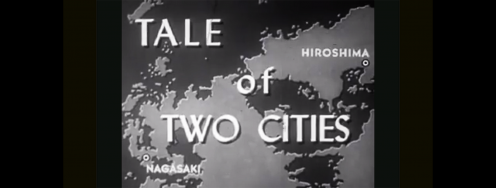Senators Urge Improved Nuclear Security
On the radar: Senators demand action at summit; Obama’s nuclear legacy; Iran’s absence from the summit; The Changing nuclear security landscape; All your summit questions answered; A Letter to Shinzo Abe; China’s nuclear security; The Navy’s highly enriched uranium; Fear of a dirty bomb; Belgium security guard killed; and the bomb to premiere
Senators urge Obama to act at summit - Senators Maria Cantwell (D-WA), Al Franken (D-MN), Edward Markey (D-MA), Jeffrey Merkley (D-OR), Patty Murray (D-WA) and Elizabeth Warren (D-MA) wrote a letter to President Obama urging him to take advantage of the upcoming Nuclear Security Summit to take several steps to reduce nuclear weapons threats and promote nonproliferation.
-- The Senators call for building on the “innovative provisions” in the Joint Comprehensive Plan of Action with Iran by increasing IAEA resources and advocating a region-wide ban on the production of highly-enriched uranium and plutonium as well as region-wide restrictions on ballistic missiles. They “stand ready to engage” on the Comprehensive Test Ban Treaty and urge a strategy for sustaining progress on securing nuclear materials after this final summit.
--Finally, the Senators urge parallel steps by the US and Russia to reduce their arsenals to 1,000 deployed warheads and 500 delivery vehicles by 2021, and ask the president to call on other nuclear-armed states to freeze their arsenals while the US and Russia work toward further reductions. Full letter here (pdf): http://1.usa.gov/1RARnq4
Grading Obama on non-proliferation - “In his fiscal 2017 budget, Obama has proposed deep cuts in spending on programs to stop nuclear proliferation while leaving intact military spending on a new generation of weapons. The countries that have not given up stockpiles of nuclear material include the riskiest ones, such as Pakistan and India. And this week’s summit will have a glaringly empty chair, Russia. The world’s other nuclear superpower, amid tensions with the United States, has chosen not to attend,” writes Steven Mufson for The Washington Post.
--“‘The president has only accomplished a fraction of what he hoped to achieve,’ said Joseph Cirincione, president of the Ploughshares Fund. And now, he said, especially after the exhausting talks with Iran, ‘some of the steam has gone out.’ Cirincione laments that ‘there wasn’t a single nuclear weapons program inherited from the Bush administration that Obama has stopped. In fact, he’s added to them.’ He points to new land-based ballistic missiles, nuclear cruise missiles, a new generation of bomber planes and weapons capable of penetrating deep underground.” Full article here. http://wapo.st/1XYqePu
Tweet - @FMWG: We need #nuclear security action at #NSS2016. Here's what it could look like: http://bit.ly/1RNxa3z #5Priorities
Iran should have a seat at the summit - “Tehran’s participation [in previous summits] would have distracted from the summits’ narrow focus on securing nuclear materials and preventing nuclear terrorism. But the failure to invite Iran to the fourth and final Nuclear Security Summit is a missed opportunity to work toward reintegrating Iran into the international nuclear order and encouraging Tehran to enhance the security and safety of its nuclear program,” writes Kelsey Davenport for the Atlantic Council.
--“The summit’s unique commitment-making model would have been an ideal vehicle for Iran to take steps unilaterally and multilaterally to make the much-needed upgrades in safety and security at its nuclear facilities. At each summit, states are encouraged to bring “house gifts,” which are pledges to take action to strengthen domestic nuclear security… Fulfillment of these national commitments account for some of the most significant advancements in nuclear security over the past six years.” Full piece here. http://bit.ly/1XYyY8i
See also - “Russia’s Absence Should Not Be Focal Point of Summit” by Kelsey Davenport for Arms Control Today. http://bit.ly/1REyCSA
Tweet - @NTI_WMD: Tell world leaders to keep #nuclear materials out of terrorists hands #NoGreaterThreat http://bit.ly/21OYtKk
A New approach to arms control - “Next week's Nuclear Security Summit — the final one — will endeavor to take further steps to establish and reinforce an international architecture for the security of nuclear materials, before they can slip into the hands of non-state actors with intentions to cause harm. In light of the threats faced today, commitments to adopt safeguard protocols agreed to by countries at these summits should be considered as valuable as the treaties achieved during the glory days of arms control,” writes Amy Nelson for National Interest.
--“While traditional efforts at arms control generally limit the physical arsenals of sovereign states that have weapons in precise geospatial locations, it is becoming increasingly plausible that a non-state actor could pull off a nuclear attack from an unknown location. So, while formal, legally binding treaties constrain the actions of and impose consequences on states, in crafting countermeasures, new arms control should take into account that new security threats know no boundaries.” Full piece here. http://bit.ly/1qbZVuA
See also - “Nuclear Security: A vital goal but a distant prospect” by Jeffrey Smith for the Center for Public Integrity. http://bit.ly/1UqjJqx
Video - “The Greatest Threat: Preventing Nuclear Terrorism,” by the Carnegie Corporation of New York. http://bit.ly/1pHwEr6
Summit analyses - Several articles from the Bulletin of the Atomic Scientists offer analysis of the 2016 summit and suggestions for future goals. The Bulletin’s articles include “A Nuclear Security Summit primer” by John Mecklin; “Nuclear security: Continuous improvement or dangerous decline?” by Matthew Bunn, Martin B. Malin, Nickolas Roth and William Tobey; “What path for nuclear security beyond the 2016 summit?” by Hubert Foy, Nilsu Goren and Michael Fuchs; and Why the Nuclear Security Summits deserve to continue” by Michael Fuchs.
Japan shouldn’t open reprocessing plant - A letter signed by more than 150 international experts calls on Japanese Prime Minister Shinzo Abe to postpone opening the Rokkasho spent nuclear fuel reprocessing plant. “While asking the people of South Carolina to accept… material to protect the world from the possibility of theft from the JAEA’s lightly guarded Tokai-mura site, Japan is planning to begin to operate in 2018 its equally insecure Rokkasho Reprocessing plant,” they write.
--“The plant is currently the only reprocessing plant in a country that does not already possess nuclear weapons… Further accumulation of nuclear-weapon-usable material is a concern for the international society and for Japan’s neighbors, who wonder why Japan is separating such huge quantities of directly weapon-usable material. Separated plutonium is a security risk. If other countries followed Japan’s example, it would increase proliferation risks.” Full letter here. http://bit.ly/1MPJx7P
China’s nuke security needs work - “Sparked by the international Nuclear Security Summits, which began in 2010, China has actively worked on new laws and regulations and has spent money to improve its nuclear facilities’ physical security, materials control, accounting, monitoring, and other equipment. A joint U.S.-China Center of Excellence on Nuclear Security was commissioned in Beijing last week,” writes Hui Zhang for Defense One.
--“But more must be done. The nuclear industry and the government agencies that regulate and fund it are far from immune to the country’s well-known and widespread corruption. Indeed, several former nuclear-sector leaders are among the senior officials accused of bribery and abuse of power in the anti-corruption campaign that began in 2012… http://bit.ly/22Ipq8a
See also - “35 Nobel Laureates in the Sciences Call on World Leaders to Take Action on Nuclear Terrorism,” from the Federation of American Scientists. http://bit.ly/25ueTfO
Belgium and the dirty bomb - “The recent attacks in Belgium and elsewhere would have been catastrophic if the terrorists had gotten their hands on nuclear weapons or even a primitive ‘dirty bomb,’ which combines nuclear material with conventional explosives. International efforts to prevent access to such weapons have made significant progress in recent years, but there is still a long way to go,” writes the Editorial Board of The New York Times.
--“More than 1,800 metric tons of nuclear material remain stored in 24 countries, much of it vulnerable to theft, according to former Senator Sam Nunn, co-chairman of the Nuclear Threat Initiative, a nonprofit advocacy group. An increasing number of countries are pursuing nuclear energy projects, even though they lack the legal, regulatory and security frameworks to ensure that such programs, designed to produce power, not weapons, are protected, he said.” Full piece here. http://nyti.ms/1ohwu8Q
See also - “Belgium Fears Nuclear Plants Are Vulnerable,” by Alissa Rubin and Milan Schreuer for The New York Times. http://nyti.ms/1RnBaWi
Nuclear site security guard killed - “Two days after bomb attacks at Brussels airport and on a packed metro killed 31 people and injured hundreds, a security guard who worked at a Belgian nuclear site was killed but the local prosecutor on Saturday ruled out any militant link. The Charleroi prosecutor's office also denied media reports that his security pass had been stolen and been de-activated as soon as investigators raised the alarm, public broadcaster VTM said,” report Barbara Lewis, Foo Yun Chee and Philip Blenkinsop for Reuters.
--“In a nation on high alert following this week's attacks, the media reports tap into fears about the possibility militants are seeking to get hold of nuclear material or planning to attack a nuclear site. On Thursday, DH had reported the suicide bombers who blew themselves up on Tuesday originally considered targeting a nuclear site, but a series of arrests of suspected militants forced them to speed up their plans and instead switch focus to the Belgian capital.” Full story here. http://reut.rs/1UjBtDX
Tweet - @taxpayers: Too many words, too few changes to counter terrorist threat in the @DeptofDefense budget http://bit.ly/22Y7Jy7
Replace the Navy’s HEU - A new report from the Nuclear Threat Initiative and the James Martin Center for Nonproliferation Studies proposes low-enriched uranium replacements for the highly enriched uranium used in naval reactors. The study’s authors, George Moore, Cervando Banuelos and Thomas Gray, suggest studying the ramifications of military HEU use on international treaties and “whether there could be an international agreement... to eliminate the use of HEU in naval propulsion reactors.” http://bit.ly/1ZIu9l4
Get ready for the bomb - “Today, the Tribeca Film Festival… announced... the world premiere of the bomb, a groundbreaking, multimedia installation created by Smriti Keshari and Eric Schlosser that immerses the audience in the strange, compelling, and unsettling reality of today’s nuclear threat… It will be preceded by a panel with the creators of the bomb, along with actor, producer, and advocate of nuclear non-proliferation, Michael Douglas,” write the editors of Tribeca. http://bit.ly/1RhcoG4
Quick Hits:
--“North Korean Propaganda Video Depicts Nuclear Strike on Washington” by Choe Sang-Hun for The New York Times. http://nyti.ms/1MPUp5B
--“Belgium Attacks Loom Over Final Nuclear Security Summit” by Aaron Mehta for Defense News. http://bit.ly/1pUuODW
--“Obama: The Anti-Anti-Nuke President,” by Alan Kuperman for The New York Times. http://nyti.ms/25pBg5P
--“The Moral Cost of Nuclear Weapons,” by Tyler Wigg-Stevenson for Huffington Post. http://huff.to/21OR3GT
--“In Japan and South Korea, bewilderment at Trump’s suggestion they build nukes” by Anna Fifield for the Washington Post. http://wapo.st/1WThcmD
--“Trump's nuclear views are terrifying” by USA Today. http://usat.ly/1ZIsOL1
--“A look at N. Korea’s threats, claims and weapons launches” by Kim Tong-Hyung and Hyung-Jin Kim for the Associated Press. http://wapo.st/1TeQENR
--“Beef Up Conventional Forces; Don’t Worry About A Tactical Nuke Gap” by Michael Krepon and Joe Kendall for Breaking Defense. http://bit.ly/1pVjmYQ
Events:
--“Nuclear Security in the Middle East,” featuring Michelle Nalabandian, Nuclear Threat Initiative, and four other speakers. March 29 from 2:00 to 4:00 p.m. at the James Martin Center for Nonproliferation Studies, 1400 K St. NW, Washington. http://bit.ly/1LNa7DH
--“Securing Tomorrow: A Conversation with Bob Work and David Ignatius,” March 30 from 9:30 to 10:15 a.m. at The Washington Post, 1301 K St NW, Washington. RSVP here. http://bit.ly/1VQcDuX
--“The Coming Plutonium Buildup in East Asia: Why America Should Worry,” featuring Robert Gallucci, former assistant Secretary of State; Robert Einhorn, former assistant Secretary of State; William Tobey, former deputy administrator, National Nuclear Security Administration; and Henry Sokolski, former DoD Deputy for Nonproliferation Policy. Sponsored by Nonproliferation Policy Education Center. March 30 from 11:30 a.m. to 1:15 p.m., at B-339 Rayburn House Office Building, Washington. RSVP online. http://bit.ly/1o8SXVz
--“Fissile Materials Working Group, Solutions for a Secure Nuclear Future,” NGO Side Event to the Nuclear Security Summit. March 31 from 9:00 a.m. to 6:00 p.m. at the Marriott Hotel, 1331 Pennsylvania Ave. NW, Washington. Webcast on the conference website. http://bit.ly/22Av2RJ
--“Beyond the Summit: Exploring New Approaches to Nuclear Security,” featuring Governor Jerry Brown (CA) and former Defense Secretary Bill Perry. March 31 at noon at the Atlantic Council, 1030 15th St. NW, 12th Floor (West Tower Elevator), Washington. RSVP online. http://bit.ly/1RKaq4x
--“The Implications of Iranian Elections on the Iran Nuclear Deal,” featuring Ebrahim Mohseni, University of Maryland; Iris Bieri, The Iran Project; Trita Parsi, National Iranian American Council; and Nancy Gallagher, University of Maryland. Sponsored by the University of Maryland. March 31 from 10:00 to 11:30 a.m. at 385 Russell Senate Office Building, Washington. http://bit.ly/1USRwso



